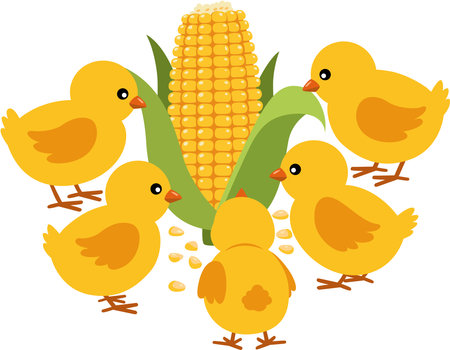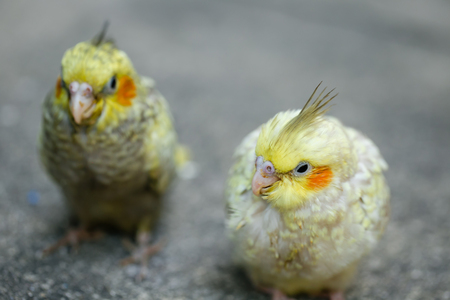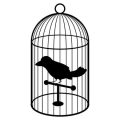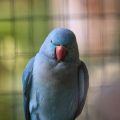Understanding the Dietary Needs of Pet Birds in the UK
Ensuring your pet bird thrives begins with understanding its unique dietary requirements. In the UK, bird keepers look after a diverse range of species, from native British birds like budgerigars and canaries to popular exotics such as cockatiels, lovebirds, and African greys. Each breed has specific nutritional needs that must be met to promote optimal health, vibrant plumage, and a long lifespan.
Commonly Kept Birds and Their Nutritional Focus
| Bird Species | Native/Exotic | Main Dietary Components |
|---|---|---|
| Budgerigar | Exotic (Australia) | Seeds, fresh greens, some fruit, formulated pellets |
| Canary | Native (UK) | Seeds, leafy vegetables, egg food during breeding |
| Cockatiel | Exotic (Australia) | Seeds, vegetables, limited fruit, pellets |
| African Grey Parrot | Exotic (Africa) | Pellets, nuts, vegetables, moderate fruit |
Essential Nutrients for Pet Birds
- Proteins: Vital for feather growth and muscle maintenance.
- Carbohydrates: Provide energy for daily activities.
- Fats: Important for cell function but should be limited to prevent obesity.
- Vitamins & Minerals: Support immune health and bone strength; calcium is especially crucial for breeding females.
Cultural Considerations in the UK
British bird owners often have access to high-quality commercial foods tailored to various species. However, supplementing these with safe local produce—such as kale, apples (without seeds), and carrots—can enrich your bird’s diet. Always research or consult an avian vet before introducing new foods to ensure safety and suitability for your particular breed.
Safe Foods for Pet Birds: What’s on the Menu?
Choosing the right foods for your pet bird is essential for their health and happiness. In the UK, many safe and nutritious options are readily available in local supermarkets and high street shops. This practical guide will help you select bird-safe vegetables, fruits, grains, and seeds that suit the British lifestyle and ensure your feathered friend receives a balanced diet.
Vegetables: Everyday Choices from UK Shops
Fresh vegetables are a cornerstone of a healthy avian diet. Most birds enjoy crunchy, colourful veg that can easily be found at Tesco, Sainsbury’s, or your local greengrocer.
| Vegetable | Preparation Tips |
|---|---|
| Carrots | Peeled and grated or chopped into small pieces |
| Broccoli | Lightly steamed or raw florets |
| Peas | Shelled and fresh (avoid tinned with added salt) |
| Kale | Washed thoroughly, served raw or lightly steamed |
| Spinach | Occasional treat only; wash well to remove pesticides |
| Cucumber | Sliced with seeds removed for easier digestion |
Fruits: Sweet Treats in Moderation
Fruits provide natural sugars and vitamins, but should be given as treats rather than staples. Select seasonal, unsprayed options where possible.
| Fruit | Serving Advice |
|---|---|
| Apple | Peeled, cored (no seeds), cut into small cubes |
| Berries (blueberries, strawberries) | Wash thoroughly; serve whole or halved depending on size of bird |
| Pear | Peeled, cored, diced; avoid seeds |
| Banana | Sliced into bite-sized pieces; feed sparingly due to sugar content |
| Grapes | Sliced and seedless varieties only; offer occasionally due to sugar level |
Grains and Seeds: The British Pantry Essentials
Your bird’s diet can include cooked grains and a variety of seeds—just avoid those salted or flavoured for human snacks.
| Grain/Seed Type | Notes & Preparation |
|---|---|
| Brown rice (cooked) | No seasoning or additives; cooled before serving |
| Porridge oats (uncooked) | A pinch sprinkled on fresh food mixes; plain only |
| Lentils (cooked) | No salt or oil; cool completely before feeding |
| Pumpkin seeds (unsalted) | Shelled; offer as an occasional treat or training reward |
| Millet spray | A favourite among UK budgies and finches; use for enrichment and occasional feeding only |
UK-Specific Shopping Tips for Bird Owners:
- Select organic produce when available to minimise pesticide exposure.
- Avoid foods pre-seasoned or processed “for human consumption” – always choose plain, unseasoned items.
- If in doubt about a particular fruit or vegetable’s safety, consult your local avian vet before introducing it to your bird’s diet.
- Rotate fresh offerings regularly to provide variety and stimulate natural foraging behaviours.
The Golden Rule: Freshness First!
Always remove uneaten fresh food after 2–3 hours to prevent spoilage, especially during warm British summers. By offering a wide selection of safe vegetables, fruits, grains, and seeds readily available across the UK, you’ll support your pet bird’s wellbeing and enrich their daily life.

3. Foods to Avoid: Protecting Your Bird from Harm
While offering a diverse diet is important, it’s equally crucial to know which foods and substances are harmful or even fatal to pet birds in the UK. Many everyday household items, plants, and human foods can pose serious risks. By being vigilant about what your bird is exposed to, you’ll prevent accidental poisoning and ensure their long-term health.
Common Household Foods Toxic to Birds
| Food Item | Why It’s Dangerous | UK Context/Tips |
|---|---|---|
| Avocado | Contains persin, which is highly toxic and causes heart failure. | Never offer guacamole or avocado-based products. |
| Chocolate | Contains theobromine and caffeine; can cause seizures and death. | Keep all chocolate treats well out of reach during holidays like Easter and Christmas. |
| Caffeine (tea, coffee) | Affects the nervous system; causes hyperactivity, arrhythmia, and death. | Brewed drinks and tea bags should always be kept away from cages. |
| Alcohol | Toxic to all birds; affects the liver and brain rapidly. | Be mindful during social gatherings or festive seasons. |
| Onion & Garlic | Can cause digestive irritation and anaemia in birds. | Avoid giving leftovers containing these ingredients. |
| Savoury Snacks (crisps, salted nuts) | High in salt and fat; damages kidneys and leads to dehydration. | Do not share pub snacks or party nibbles with your bird. |
| Dairy Products | Birds are lactose intolerant; can cause diarrhoea and digestive issues. | Avoid cheese, milk, yoghurt—even if they beg for a taste! |
| Xylitol (artificial sweetener) | Can lead to rapid insulin release, causing hypoglycaemia and liver failure. | Check labels on sugar-free gum or sweets often found in UK shops. |
| Mouldy or Spoiled Food | Mould produces toxins that are fatal to birds even in small amounts. | Dispose of old bread or fruit promptly—never feed scraps from the compost bin. |
Dangerous Plants Common in UK Homes and Gardens
| Plant Name | Toxic Component/Effect | Where Found in the UK |
|---|---|---|
| Daffodils (Narcissus) | Lycorrine; causes vomiting, diarrhoea, convulsions | Springtime gardens, bouquets, parks |
| Poinsettia | Irritates mouth and stomach lining; mild toxicity but still risky | Popular at Christmas as decorative houseplants |
| Lilies (various types) | Toxic alkaloids; severe kidney failure possible in some species | Bouquets, flower beds, funeral arrangements |
| Ivy (Hedera helix) | Saponins; causes vomiting and abdominal pain if ingested | Widespread as garden climber or indoor plant |
| Mistletoe & Holly berries | Mistletoe: viscotoxin; Holly: saponins—both cause gastrointestinal upset or worse | Christmas decorations in homes across the UK |
Chemicals & Other Substances to Keep Away from Birds
- Teflon/Non-stick fumes: Overheated cookware releases fumes deadly to birds—always use alternatives like stainless steel or cast iron when cooking around your pet.
- Aerosol sprays & scented candles: Air fresheners, perfumes, polish sprays, incense sticks, and candles with strong scents can irritate your bird’s sensitive respiratory system.
- Cigarette smoke & vaping: Both are toxic; keep birds far from smoking areas.
- Pesticides & cleaning products: Store securely—ventilate well after use anywhere near your bird’s living space.
- Blu-Tack & glue: Birds may chew on tack used for posters or cards at home—remove all adhesives within reach of curious beaks.
Your Action Plan for Safety:
- Create a list of forbidden foods/plants near your bird’s cage for family members or visitors.
- Educate children about never feeding birds “human” snacks.
- If you suspect poisoning, contact an avian vet immediately—keep their emergency number handy.
- Regularly check your home for new plants or foods that might be hazardous.
- Avoid sharing plates or letting your bird roam unsupervised in kitchens during meal prep times.
Keen awareness of these dangers will help you create a safe environment where your feathered friend thrives without risk from common UK household hazards.
4. Building a Balanced Diet: Tips for Everyday Feeding
Feeding your pet bird in the UK requires more than just topping up their seed bowl each day. A balanced, varied diet is crucial for their health, happiness, and longevity. Here’s how you can create a nutritious meal plan tailored to your feathered friend’s needs.
Why Variety Matters
Birds thrive on diversity in their diet. Sticking to only seeds or pellets can lead to nutritional deficiencies and boredom. By mixing different types of foods, you provide essential vitamins, minerals, and stimulation that mimic natural foraging behaviour.
Core Components of a Healthy Bird Diet
| Food Type | Examples | How Often |
|---|---|---|
| High-Quality Seed Mixes | UK-sourced parrot mix, budgie blend, finch seed | Daily (in moderation) |
| Pellets | Formulated bird pellets from reputable UK brands | Main staple or mixed with seeds daily |
| Fresh Fruit & Veg | Apples (seedless), carrots, broccoli, peas, sweetcorn | Every day |
| Protein Sources | Cooked eggs, pulses, occasional mealworms (for some species) | A few times per week |
| Treats & Foraging Foods | Nuts (unsalted), UK-grown berries, millet sprays | Sparingly; as enrichment |
Sourcing Quality Bird Food in the UK
Selecting reliable sources ensures your bird gets safe and fresh food. Look for:
- Pet shops specialising in avian care (like Pets at Home or local independent stores)
- UK-based online retailers offering organic and non-GMO options
- Farmers’ markets and supermarkets for fresh British produce—always wash thoroughly before serving
- Avoid wild-harvested foods unless you are certain they’re free of pesticides and safe for birds
Sample Weekly Meal Plan for Pet Birds
| Day | Main Feed | Additions/Treats |
|---|---|---|
| Monday | Pellet mix + seed blend | Sliced apple & carrot sticks |
| Tuesday | Pellet mix + seed blend | Pepper slices & peas; small piece of boiled egg |
| Wednesday | Pellet mix + seed blend | Berries (strawberries/blueberries); millet spray treat |
| Thursday | Pellet mix + seed blend | Kale leaves; sweetcorn kernels; nuts (occasional) |
| Friday | Pellet mix + seed blend | Broccoli florets; cooked lentils or beans (cooled) |
| Saturday | Pellet mix + seed blend | Cucumber slices; small amount of brown rice or pasta (plain) |
| Sunday | Pellet mix + seed blend (lighter portion) | Mango or melon cubes; special foraging toy treat |
Tips for Everyday Feeding Success:
- Rotate vegetables and fruits weekly to prevent fussiness and ensure complete nutrition.
- Avoid feeding avocado, chocolate, caffeine, onion, garlic, or salty snacks—these are toxic to birds.
- If introducing new foods, do so gradually and observe your bird’s reaction.
- Cater portions to your bird’s species and size—consult with an avian vet if unsure.
- Always provide fresh water daily and clean feeding bowls regularly to prevent illness.
- Create opportunities for natural foraging by hiding food around the cage or using puzzle feeders available from UK pet retailers.
The key to a healthy pet bird is consistency and variety. By planning ahead with UK-appropriate foods and trusted suppliers, you’ll support both their nutritional needs and their mental wellbeing.
5. British Bird Owners’ Practical Tips and Tricks
Useful Hacks for Everyday Bird Care in the UK
Caring for pet birds in the UK comes with its own unique set of challenges and opportunities. Local weather patterns, seasonal daylight variations, and the range of available products all influence how you look after your feathered friends. Here are practical tips, tricks, and routines tailored specifically to British bird owners.
Coping with Seasonal Changes
| Season | Challenge | Practical Solution |
|---|---|---|
| Winter | Short daylight hours & cold temperatures |
|
| Summer | High temperatures & longer days |
|
| Spring/Autumn | Unpredictable weather & moulting season |
|
Culturally Relevant Routines for UK Bird Owners
- Morrisons Market Street Veg: Take advantage of affordable fresh produce at local supermarkets like Morrisons, Tesco, or Sainsbury’s for daily veggie variety.
- British Water Quality: Use filtered or bottled spring water if you live in a hard water area to avoid mineral build-up in your bird’s system.
- Pollen and Dust: In rural areas or during hay fever season, keep windows closed and clean cages frequently to reduce exposure to airborne allergens.
- Routine Vet Checks: Schedule annual check-ups with an avian vet—find one via The Royal College of Veterinary Surgeons (RCVS) website.
- Pet Insurance: Consider UK-based insurers (like Petplan or ExoticDirect) that offer avian cover for peace of mind against unexpected health costs.
- Litter Choices: Opt for dust-extracted wood shavings or recycled paper bedding from UK brands such as Back-2-Nature for cleaner cages.
- Treats and Supplements: Use reputable UK products like Johnson’s Fruity Parrot Treats or Harrison’s Bird Bread Mix (available at Pets at Home).
- Sustainable Toys: Support local businesses by purchasing handmade bird-safe toys from UK Etsy sellers or local pet shops.
Recommended UK Products Table
| Product Type | UK Brand/Source | Description/Benefit |
|---|---|---|
| Pellets & Seed Mixes | Tidymix, Johnston & Jeff, Haiths | Nutritionally balanced, widely available in the UK, suitable for various species. |
| Treats & Supplements | Pets at Home (own brand), Harrison’s, Beaphar AviCare+ | Treats and supplements formulated for British pet birds. |
| Bedding/Litter Material | Back-2-Nature, SmartBedz Paper Bedding | Dust-free options made from recycled materials; good for respiratory health. |
| Toys & Enrichment Items | Etsy UK Sellers, Rosewood Boredom Breakers, Northern Parrots Shop | Sustainably sourced enrichment toys supporting local businesses. |
| Cage Accessories & Heating Solutions | The Birdcare Company, Arcadia Bird Lamps (UV), SnuggleSafe Heat Pads | Cage-safe accessories designed for the British climate and housing standards. |
Your Next Steps as a Responsible UK Bird Owner
Create a routine based on the changing seasons and stock up on recommended British products. Regularly observe your bird’s behaviour and appetite—any sudden changes may warrant a visit to your local avian vet. By following these practical hacks and embracing culturally relevant routines, you’ll ensure your pet bird thrives year-round in the UK environment.
6. When to Seek Expert Advice
Even with the best intentions and a well-balanced diet, your pet bird may sometimes show signs of malnutrition or illness that require professional intervention. Recognising early warning signals is crucial for your bird’s health and wellbeing. This section will guide you on what to watch for, and how to find qualified avian vets or nutritionists across the UK.
Recognising Signs of Malnutrition or Illness
It’s important to monitor your bird’s behaviour and physical condition daily. If you notice any of the following symptoms, it could be a sign of nutritional deficiency or underlying illness:
| Sign | Description |
|---|---|
| Weight Loss | Noticeable reduction in body mass despite regular feeding. |
| Feather Problems | Dull, brittle, or missing feathers; excessive moulting. |
| Lethargy | Lack of energy or reluctance to play, fly, or interact. |
| Changes in Droppings | Unusual colour, consistency, or frequency in droppings. |
| Poor Appetite | Refusal to eat familiar foods or sudden disinterest in food. |
| Beak or Claw Abnormalities | Overgrown, misshapen, or soft beak/claws. |
| Respiratory Issues | Wheezing, coughing, or laboured breathing. |
Finding Avian Vets and Nutritionists in the UK
If you observe any concerning signs, it’s vital to consult an expert promptly. The UK offers several resources for finding reputable avian specialists:
- The Royal College of Veterinary Surgeons (RCVS): Use their Find a Vet tool and filter by ‘avian’ expertise.
- The British Veterinary Zoological Society (BVZS): Offers a directory of vets with experience in exotic pets including birds.
- The Association of Avian Veterinarians (AAV): International database featuring UK-based members.
- Nutritional Consultants: Many avian vets can refer you to certified pet nutritionists specialising in bird diets.
- Local Bird Clubs & Charities: Groups such as The Parrot Society UK often have connections with trusted avian professionals.
Emergency Situations: When Immediate Help Is Needed
If your bird is unable to stand, is bleeding heavily, has difficulty breathing, or shows neurological symptoms such as seizures, seek emergency veterinary care straight away. Many animal hospitals offer 24-hour services—search online for “emergency avian vet near me” or contact the RCVS for urgent assistance.
Key Takeaway:
Your vigilance and prompt action are essential for your bird’s health. Regular check-ups with an avian vet and ongoing observation at home are the best ways to ensure your pet thrives on a safe and nutritious diet tailored for birds living in the UK.


